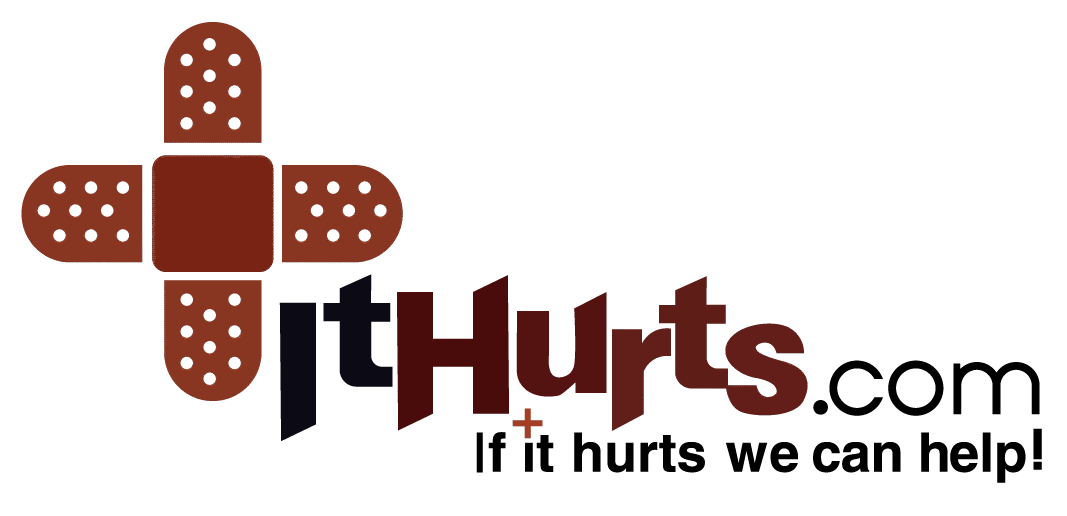Shopping Cart
CloseNo products in the cart.
Filter
closeBeyond the Blues: Preventing and Reducing Depression-Related Pain
Author: ItHurts.com
A Comprehensive Talk on Depression and Chronic Pain

Understanding the Basics:
When discussing depression, the focus often revolves around emotional well-being, yet its physical manifestations—commonly referred to as depression-related pain—are just as impactful. This pain, which includes headaches, muscle aches, and deep fatigue, often compounds the challenges of mental health struggles. Fortunately, understanding, treating, and preventing this pain is possible with a combination of awareness, proactive care, and evidence-based strategies.
Description of Depression-Related Pain
Depression-related pain manifests in several forms, often varying from person to person:
– Headaches: These are tension-type headaches characterized by a dull, constant ache, typically felt around the forehead or temples. Unlike migraines, they do not involve nausea or sensitivity to light.
– Muscle Aches and Joint Pain: Generalized muscle stiffness, soreness, and joint discomfort are common. The pain can feel similar to fibromyalgia, a condition marked by widespread musculoskeletal pain.
– Chest Pain: Depression can intensify the perception of chest pain, often mistaken for heart issues. It may stem from increased tension in the chest muscles or the physiological effects of stress.
– Back Pain: Persistent back pain often accompanies depression, exacerbated by poor posture, inactivity, or stress-related muscle tension.
– Fatigue and Body Aches: A profound sense of physical exhaustion, coupled with aching muscles and joints, is a hallmark of depression-related pain.
Underlying Reasons for Depression-Related Pain
Physiological and anatomical reasons behind depression-related pain include:
– Neurotransmitter Imbalance: Low levels of serotonin and norepinephrine reduce the body’s ability to suppress pain signals.
– Cortisol Dysregulation: Prolonged stress and depression elevate cortisol levels, leading to chronic inflammation and heightened pain sensitivity.
– Autonomic Nervous System Dysfunction: Depression can alter the balance between the sympathetic (fight-or-flight) and parasympathetic (rest-and-digest) systems, resulting in persistent muscle tension and nerve irritation.
– Central Sensitization: In some cases, depression causes the central nervous system to amplify pain signals, a phenomenon seen in conditions like fibromyalgia.
Causes of Depression-Related Pain
Several factors contribute to depression-related pain:
– Psychological Stress: Chronic stress associated with depression triggers muscle tension and inflammation.
– Altered Brain Chemistry: Changes in neurotransmitters like serotonin and dopamine impact the brain’s ability to regulate pain perception.
– Sleep Disturbances: Depression often leads to insomnia or disrupted sleep, which impairs the body’s ability to repair itself, increasing sensitivity to pain.
– Reduced Physical Activity: Depression discourages movement, leading to stiffness and muscle weakness.
– Comorbid Conditions: Conditions like anxiety, fibromyalgia, or irritable bowel syndrome (IBS) often coexist with depression, amplifying pain.
Presentation of Depression-Related Pain
Depression-related pain often presents itself in a subtle yet persistent manner:
– The pain is diffuse and difficult to localize.
– It is often described as a “heaviness” or “aching” sensation.
– Symptoms may worsen during periods of heightened stress or sadness.
– Pain is often accompanied by fatigue, lethargy, and a sense of physical heaviness.
This pain can be confusing for those experiencing it, as there may be no obvious physical cause, which can lead to feelings of frustration or hopelessness.
Treatment and Relief for Existing Pain
While depression-related pain can feel overwhelming, various strategies provide effective relief:
Physical Exercises and Stretches
– Engage in low-impact aerobic exercises such as walking, swimming, or yoga to release endorphins.
– Perform stretches targeting tension-prone areas like the neck, shoulders, and back.
– Strength training can improve muscle tone and reduce stiffness.
Self-Massage Techniques
– Use foam rollers to release muscle knots and improve circulation.
– Massage tense areas using essential oils like lavender or eucalyptus for added relaxation.
– Apply heat pads or warm baths to loosen tight muscles.
Holistic Approaches
– Mindfulness Meditation: Focused breathing and mindfulness techniques can reduce perceived pain intensity.
– Acupuncture: Studies show that acupuncture helps reduce pain by promoting natural painkillers in the body, such as endorphins.
– Aromatherapy: Lavender oil has been shown to reduce stress and muscle tension when used in a diffuser or bath.
Medical Treatments
– Antidepressants: Medications like selective serotonin reuptake inhibitors (SSRIs) and serotonin-norepinephrine reuptake inhibitors (SNRIs) help regulate pain perception.
– Physical Therapy: Tailored therapy can address specific muscle imbalances and improve posture.
– Pain Management Clinics: These provide a multidisciplinary approach to chronic pain management.
Actionable Steps for Preventing Depression-Related Pain
Proactive measures can significantly reduce the risk of depression-related pain:
1. Maintain Good Posture
– Use ergonomic chairs that support the natural curvature of the spine.
– Position screens at eye level to avoid neck strain.
– Take breaks to stretch during prolonged sitting.
2. Create a Regular Exercise Routine
– Incorporate at least 150 minutes of moderate exercise weekly.
– Focus on activities you enjoy to ensure consistency.
3. Stress Management
– Practice mindfulness meditation or yoga daily.
– Engage in hobbies or activities that bring joy and relaxation.
– Seek therapy or counseling for chronic stress management.
4. Prioritize Sleep Hygiene
– Maintain a consistent sleep schedule.
– Limit screen time before bed.
– Create a calming bedtime routine, such as reading or listening to relaxing music.
5. Balanced Nutrition
– Consume foods rich in omega-3 fatty acids, magnesium, and vitamin D, all linked to improved mood and pain regulation.
– Stay hydrated to reduce muscle cramps and fatigue.

Final Thoughts:
Depression-related pain is a complex and multifaceted challenge, but with the right knowledge and tools, it can be effectively managed and even prevented. By understanding its causes, addressing underlying physiological factors, and adopting proactive strategies, individuals can alleviate pain and improve their quality of life.
Remember, no one needs to face this journey alone. Consult healthcare professionals for tailored treatments, and consider joining support groups or communities for encouragement and shared experiences.
Take the first step today toward a healthier, pain-free tomorrow. Your body—and mind—will thank you.
ItHurts.com is your ally in your endeavor to live pain-free. We offer guidance, resources, and community support to address chronic pain, emotional stress, and physical discomfort. Discover insightful articles, product reviews, recommendations and shared experiences to empower your journey to better health. Remember, if it hurts, we can help!
Related Products
No posts found!
Related Blogs
No posts found!
